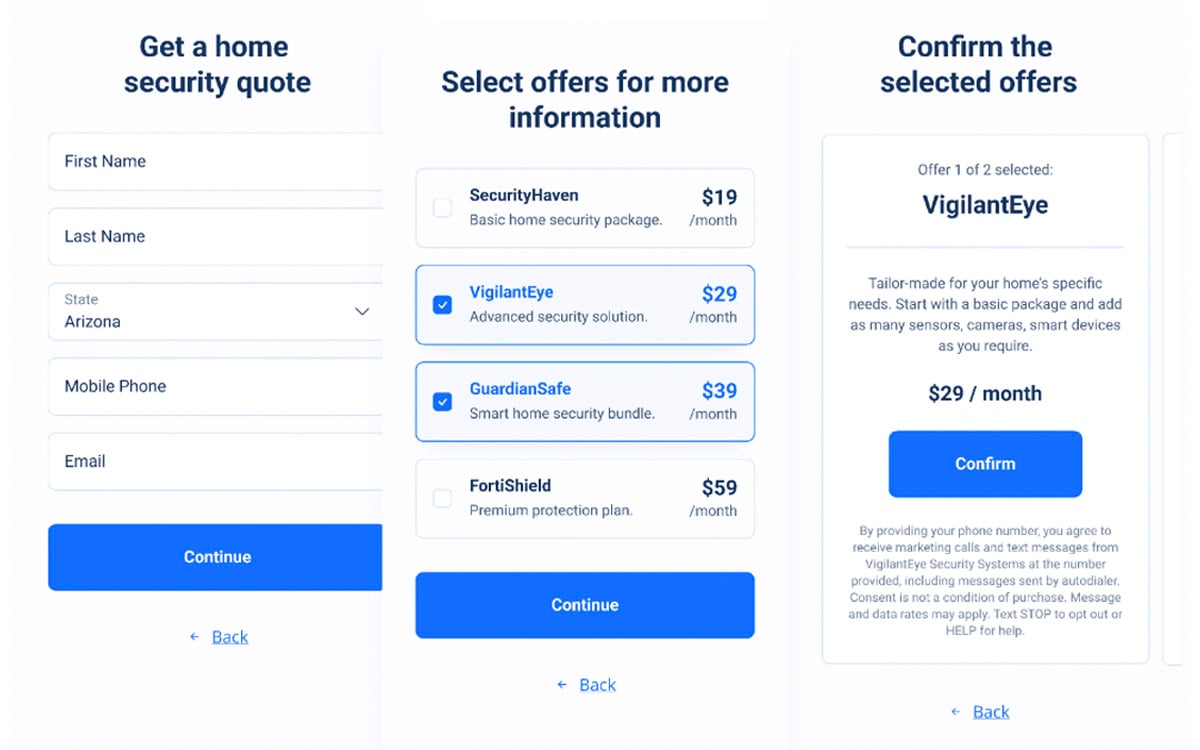TCPA Consent Requirements*
*UPDATE - The One-to-One Rule was struck down in court prior to implementation, this article is for archival purposes only. To read more, please see our updated post.
Evolving Consent Requirements
The Federal Communications Commission (FCC) has enacted regulations that significantly impact the lead generation and sales industry. These new rules require individual express consent for each lead that is contacted through regulated technologies. This fundamentally changes how lead generation companies using ping-post and bid-based sales can operate.
The FCC's one-to-one consent rule is a new federal regulation that changes the TCPA's definition of express written consent. It requires consumers to individually select each "seller"—the ultimate provider of goods or services—from whom they wish to receive calls. Brands must obtain direct, written permission from consumers, specific to each brand and separate from other sellers. This rule takes effect on January 27, 2025.
The FCC established these new rules to protect consumers. They address concerns about privacy and unauthorized use of consumer information in the lead generation industry. These rules ensure consumers understand who is contacting them and for what purpose.
Individual Consent
What does "individual consent" mean? This means a lead has to give individual consent to each lead buyer. This is where the "one-to-one" comes in. One lead gives consent to one buyer.
This complicates sales to multiple buyers because marketers can no longer use a blanket consent form for multiple buyers.
Implications for Ping-Post Lead Sales
Companies using ping-post to sell leads to multiple buyers must now provide explicit consent for each potential buyer. This requires a more granular approach to consent collection; every lead sale must comply with the new standards.
Marketers using ping-post (auctioning leads to the highest bidder) face significant challenges with the new regulations. Many have feared that ping-post selling will be a thing of the past when these regulations go into effect.
The good news is that software providers have worked to solve this problem. When a lead fills out a form, they are immediately sent a list of vendors. These vendors are the lead buyers. They can then choose each of the vendors that they wish to give consent to contact.

Companies must also obtain and document consent in a way that clearly links each lead to specific buyers. This means that the process of selling leads can no longer operate on broad or implied consent. Each transaction must be supported by proof that the consumer has agreed to the sale of their data to the specific buyer.
In practical terms, ping-post platforms are developing systems that manage this detailed level of consent. Ping-post software has to track and verify that the consumer has given permission for their details to be shared with each potential buyer.
In the old model, a ping is sent to buyers, the buyers respond and the post is sent. In the new model, the initial ping is sent to buyers, and they respond. The lead then explicitly selects which buyers they consent to receive their information. After consent is given, the post is sent to the approved buyers.
The requirement for specific consent may slow down the lead sales process. It necessitates additional steps to confirm consumer agreement for each sale. This is a necessary compromise to comply with these stringent consent requirements.
These changes may also influence the overall value of leads in the ping-post market. Leads with clear, documented consent for multiple buyers could become more valuable. They offer a higher level of compliance certainty and reduce the risk of regulatory violations. They also offer a soft "first touch," providing a level of familiarity prior to contact.
The new FCC rules on ping-post lead sales have profound implications. Companies must adopt a meticulous approach to consent collection, ensuring each lead sold meets the new standards.
This requires significant adjustments in how leads are managed, verified, and sold in the ping-post environment. However, marketers are not alone; forward-thinking lead sales platforms are tackling the problem with smart software solutions.
Compliance Challenges and Solutions
Lead gen companies need robust systems to manage and document the consent for each lead. This requires enhancing data management processes, refining consent mechanisms on lead capture forms, and ensuring transparent communication of consent terms to consumers.
Strategic Response to Market Transformation
The lead sales market is evolving to meet these changes. Companies must adapt their operational and strategic approaches to remain compliant and competitive. This involves developing clear, consumer-friendly consent processes and tracking and managing consents. This requires robust lead distribution software.
Building Trust through Transparency
The FCC’s focus on individual consent highlights the importance of transparency in lead generation and sales. By ensuring clear and informed consent, marketers build greater trust with consumers and enhance their reputation in the market.
The FCC's new regulations are a major shift for lead-based businesses, especially regarding ping-post. Companies must act strategically to update their consent practices and technology infrastructure, ensuring compliance while maintaining efficient operations. This transition, while challenging, offers an opportunity to reinforce consumer trust and establish a more transparent and reliable lead generation ecosystem.
Learn more about Lead Compliance






